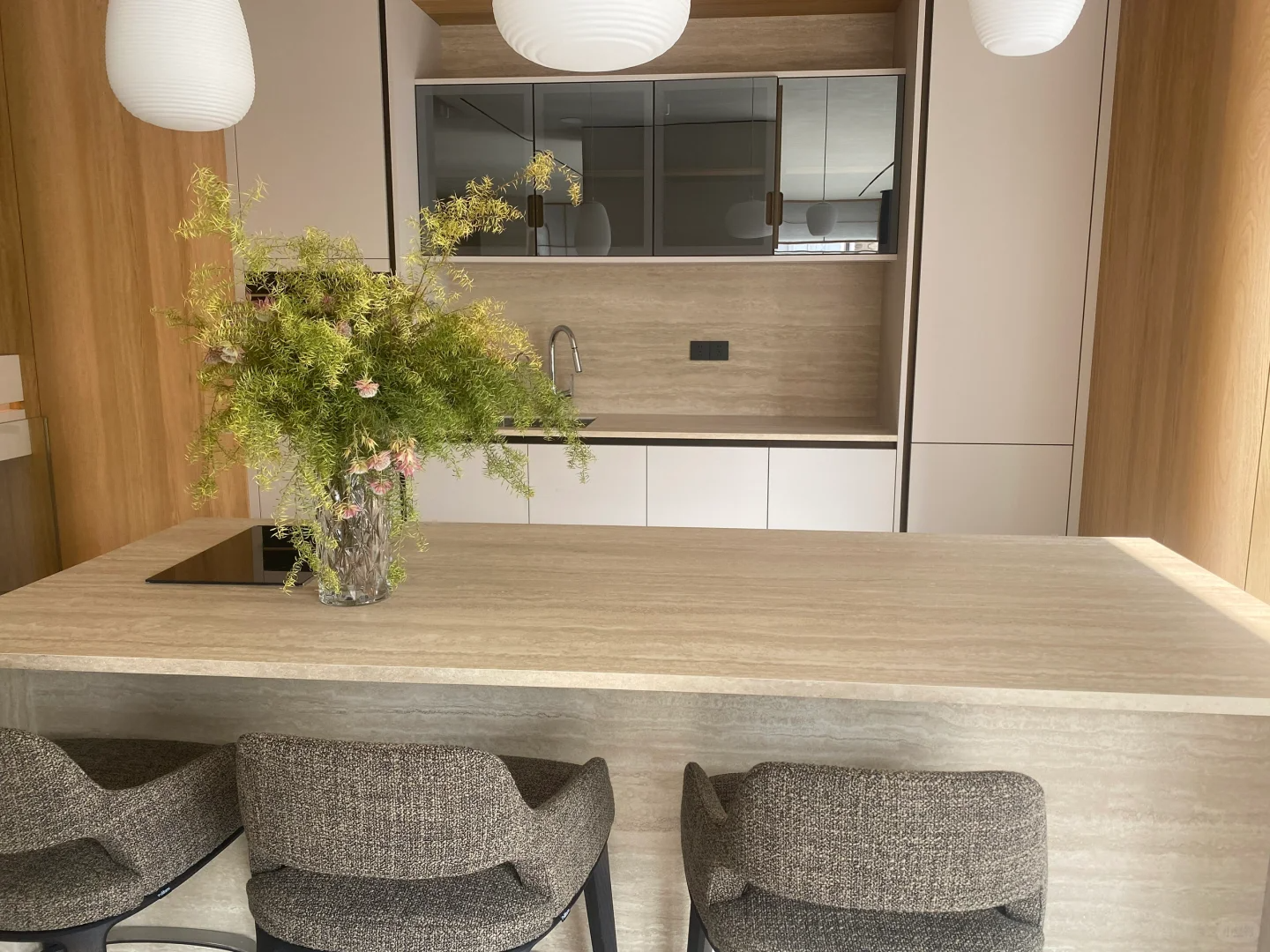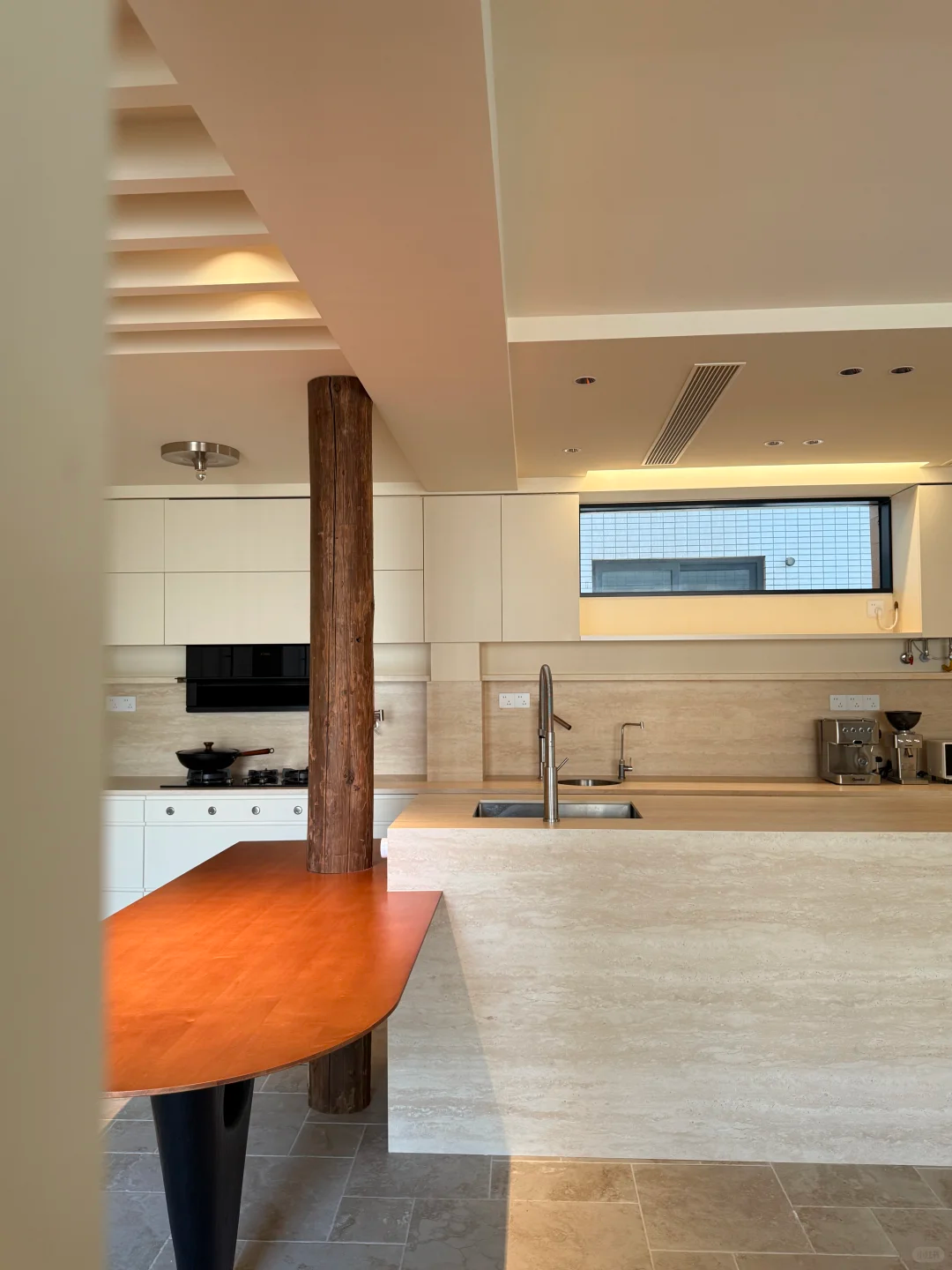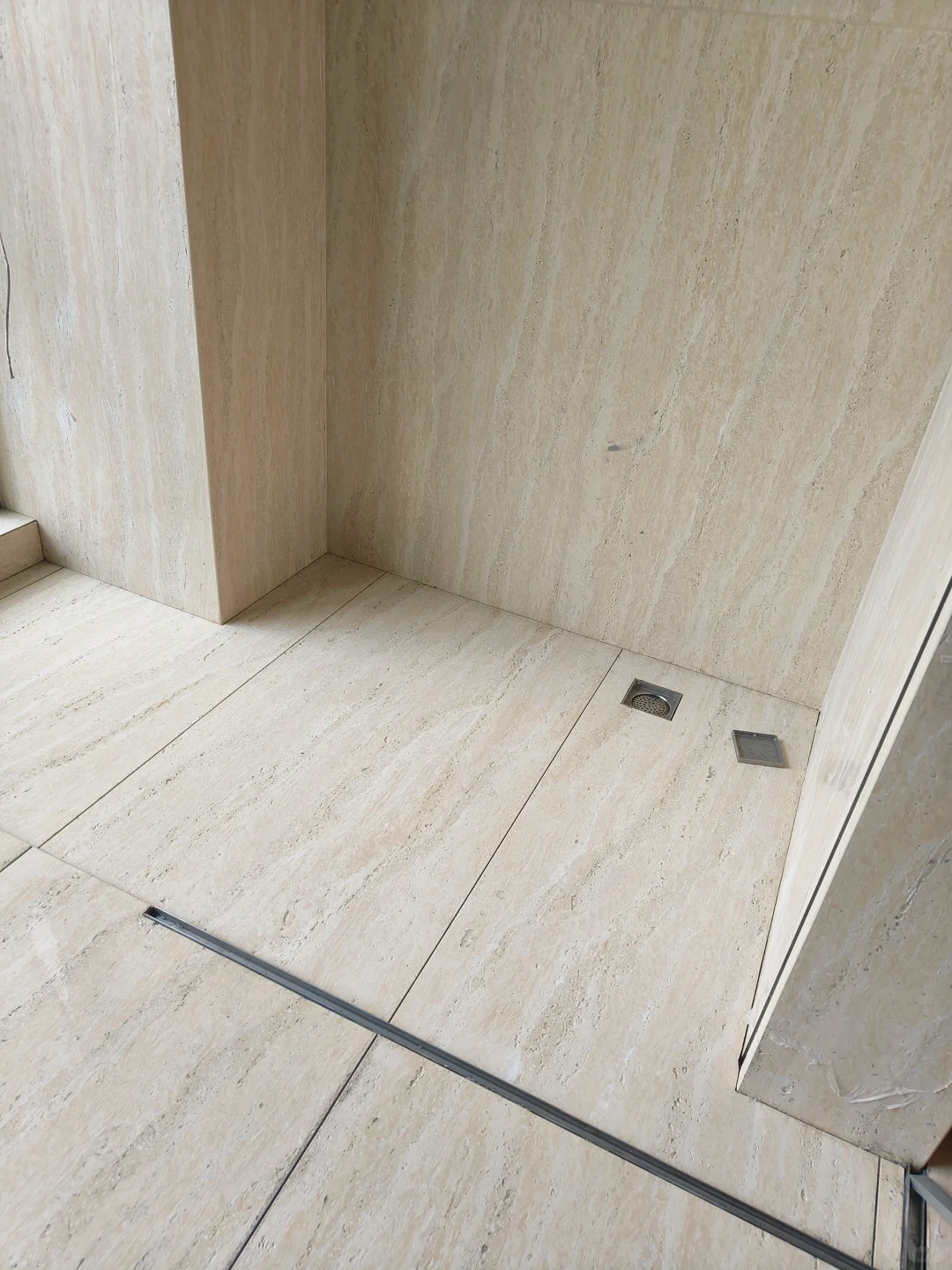موزاییک آشپزخانه Travertine
کاشی مطبخ تراورتنین نمایانگر گزینهای با دوام و فاخر از سنگ طبیعی است که زیبایی بیبدیل به هر فضای آشپزخانهای میبخشد. این ماده بر پایه سنگ آهک، که از رسوبات معدنی چشمههای آب گرم شکل گرفته است، دارای خصوصیات منحصربهفردی است که آن را برای استفاده در آشپزخانه بسیار مناسب میکند. هر کاشی الگوی متفاوتی دارد و رنگهایی از قهوهای گرم تا کرم غنی به خود میگیرد و ظاهری منحصر به فرد ایجاد میکند که شخصیت خاصی به طراحی آشپزخانه شما میدهد. تخلخل طبیعی این ماده مقاومت لغزشی عالی فراهم میکند، در حالی که ساختار متراکم آن دوام بسیار بالایی حتی در مقابل ترافیک سنگین پایی را تضمین میکند. کاشیهای تراورتنین را میتوان به روشهای مختلفی شامل صیقلی، مات یا سطوح قدیمی (tumbled) تکمیل کرد که این امکان را فراهم میکند تا با سبکها و نیازهای عملی مختلف آشپزخانه تطبیق داده شوند. این کاشیها به طور طبیعی در برابر گرما و رطوبت مقاوم هستند و بنابراین برای محیطهای آشپزخانه که در معرض نوسانات دما و تماس با آب قرار دارند، بسیار مناسبند. ضخامت این کاشیها معمولاً بین 3/8 تا 1/2 اینچ است و استحکام و ظرفیت تحمل وزن بالایی را فراهم میکند. ترکیب طبیعی این ماده همچنین به آن اجازه میدهد دمای ثابتی را حفظ کند و در تمام فصول سال راحتی لازم را در زیر پا فراهم کند.


